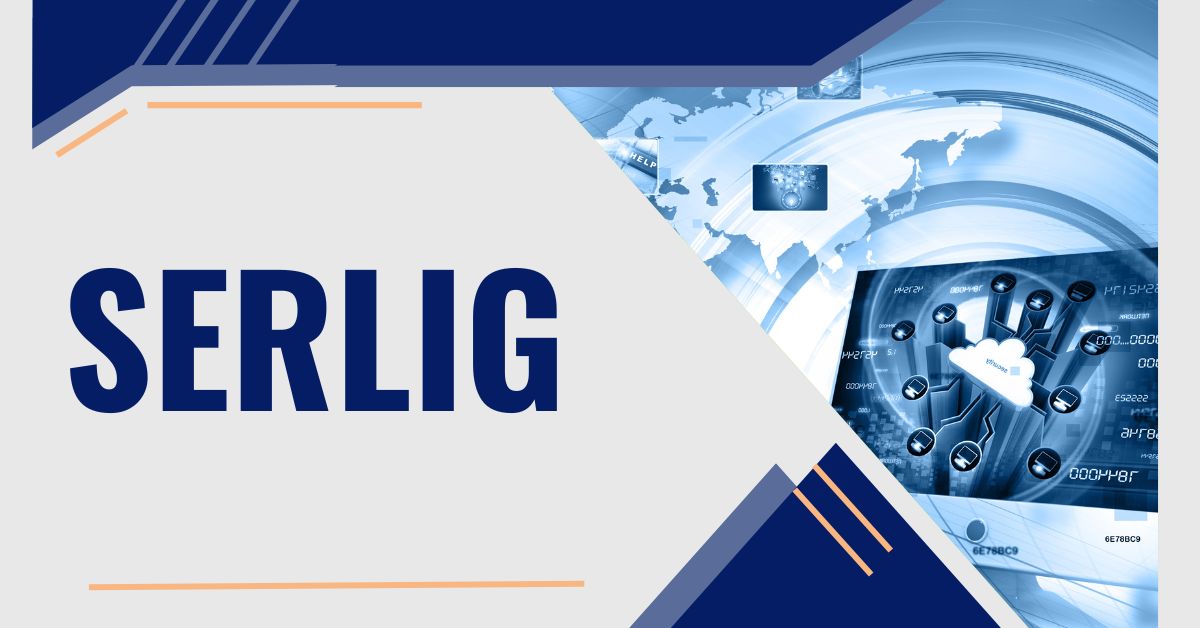Technology
Faibloh: Meaning, Online Use, and Safety Tips

The word Faibloh has begun to appear in searches, forums, and casual online talks. Since it is not tied to a major global brand or widely recognized service, many people wonder what it means. Like other emerging terms, Faibloh is shaped by the context in which you encounter it. Understanding how it appears online, why people search for it, and what precautions to take can help you handle the term with more clarity.
What Faibloh Might Mean
Faibloh does not have a single, confirmed definition. Based on how it is used, it might refer to:
-
A personal or community username in social spaces or gaming
-
A new or developing website or domain name
-
A product, project, or brand idea with limited reach
-
A word from a regional or cultural background not yet mainstream
This makes Faibloh more of a keyword that sparks curiosity than a verified or established brand.
Why People Search for Faibloh
There are different reasons behind searches for Faibloh:
-
Curiosity about new or unusual words
-
Checking if the term links to an app, game, or service
-
Interest in a site or domain connected to the name
-
Research into cultural or language references
The mix of personal, cultural, and digital triggers explains why such terms spread quickly.
Possible Risks with Unknown Terms
When a name like Faibloh is linked to a website or service, you should remain cautious. Risks include:
-
Suspicious domains created to collect data
-
Fake platforms that request payments with no return value
-
Links containing harmful downloads
-
Lack of verified ownership or reviews
The less information available, the higher the need for care.
How to Check if Faibloh is Safe
If you come across Faibloh as a website or service, you should test its reliability first:
-
Look for HTTPS security on the site
-
Search independent reviews or community mentions
-
Check how long the domain has been active
-
Avoid sharing personal or payment details at early stages
-
Compare it with known services offering the same features
These checks reduce the chance of engaging with unsafe platforms.
Online Safety Habits for You
Building strong habits protects you when dealing with terms like Faiblo’h:
-
Keep your antivirus software updated
-
Do not click on random ads or pop-ups
-
Use separate emails for unverified signups
-
Turn on two-factor authentication for your main accounts
-
Stay updated about common scams and phishing tricks
These habits work across all unknown platforms, not just Faiblo’h.
Who Is Interested in Faibloh
The keyword is likely to attract:
-
Users exploring new words or trends
-
Online communities looking for unique names
-
Shoppers or gamers testing possible new services
-
Researchers studying cultural terms or internet language
Because of this broad interest, Faibloh spreads online even before its meaning becomes clear.
Safer Choices for Exploration
If your goal is to find influencer content, new apps, or shopping services, stick to trusted platforms. Larger social networks, verified game stores, and established e-commerce sites provide more security compared to unknown domains with names like Faiblo’h.
Why Keywords Like Faibloh Spread
Internet culture often pushes unusual words into search trends. Even without strong definitions, names stand out and invite curiosity. This shows how users shape the spread of online terms through searches and shares.
Conclusion
Faibloh is a growing keyword that sparks interest but has no single, confirmed meaning. It could be linked to usernames, domains, or local language use, but its exact role is still unclear. If you encounter services tied to Faiblo’h, check their safety first, avoid sharing personal details too soon, and rely on trusted platforms when possible. By being cautious, you balance curiosity with online safety.
Technology
irobux.com Redeem: Your Guide to Robux Rewards

The digital landscape of Roblox is vast, fueled by creativity and the in-game currency known as Robux. For players looking to enhance their experience, finding legitimate ways to acquire Robux is a common quest. This is where platforms like irobux.com enter the conversation, offering a potential pathway to earn the currency needed for accessories, game passes, and developer tools. The core function that users seek is the irobux.com redeem process, which is the final step in converting earned points or rewards into tangible Robux for their accounts. Understanding how this system works, its requirements, and the best practices for using it is crucial for any savvy Roblox enthusiast. Navigating these third-party sites requires a blend of optimism and caution to ensure a safe and successful transaction.
What is irobux.com?
Irobux.com presents itself as an online rewards platform specifically tailored for the Roblox community. The fundamental idea is that users can complete various tasks, such as participating in surveys, watching promotional videos, or downloading specific applications, to accumulate points. These points are then housed within the user’s account on the irobux.com website. The ultimate goal for every user is to reach the minimum threshold and initiate a redemption request. The platform acts as an intermediary, theoretically converting the user’s earned credits into Robux that are then transferred to their Roblox account. It is part of a broader ecosystem of similar sites that connect advertisers with consumers, using Robux as a compelling incentive for engagement.
How the Redemption Process Works
The central action on the platform, the irobux.com redeem function, typically follows a structured sequence. After logging into your account, you navigate to a dedicated redemption section, often labeled as “Redeem” or “Rewards.” Here, you will usually find a list of available Robux denominations, each with a corresponding point cost. Once you select your desired amount, you will be prompted to enter your Roblox username carefully. This is a critical step, as any error can result in the Robux being sent to the wrong account. After confirming the details, you submit the request, and the platform processes it, sending the Robux as a gift through the official Roblox system.
Verifying Your Identity and Account
A common step that often surprises new users is the identity verification process. Many of these reward sites, including irobux.com, implement this to prevent fraud and the use of automated bots. You might be required to verify your email address or phone number linked to your account before you are permitted to redeem rewards. This adds a layer of security, ensuring that each account represents a real person. Furthermore, some platforms may have a requirement for your Roblox account to be a certain age or to have a verified email address attached to it to receive gifts, which is a policy set by Roblox itself to protect users.
The Legitimacy and Safety Question
When dealing with any site that offers free in-game currency, the question of legitimacy is paramount. The safety of using irobux.com redeem services is a topic of significant discussion within the Roblox community. While the platform itself may not be an outright scam, it operates in a gray area. Users must be acutely aware of the risks, which include providing personal data for surveys and the potential for account phishing if they are tricked into entering their Roblox password on a fake site. A legitimate rewards site will never ask for your Roblox password; it only requires your username for gifting purposes.
Understanding the Time and Effort Investment
It is crucial to approach these platforms with realistic expectations about the time investment required. Earning enough points for a substantial Robux payout is often a slow and labor-intensive process. Tasks may credit points inconsistently, and some surveys can disqualify you after you have spent several minutes on them, resulting in zero reward. The irobux.com redeem option is the light at the end of the tunnel, but the tunnel itself can be long and tedious. You must weigh the hours spent completing micro-tasks against the monetary value of the Robux you are trying to earn to see if it is a worthwhile endeavor for you.
Best Practices for a Smooth Experience
To maximize your chances of a positive outcome when you aim to irobux.com redeem, adhering to a set of best practices is highly recommended. Always use a unique password for your rewards site account, different from your Roblox credentials. Double and triple-check your Roblox username during the redemption process to prevent costly errors. Keep a record of your redemption requests, including the date, amount, and any order ID provided by the site. This documentation is invaluable if you need to follow up on a delayed or missing reward. Patience is also a virtue, as processing times can vary from instantly to several days.
Avoiding Common Pitfalls and Scams
The digital rewards space is unfortunately rife with bad actors, so vigilance is your best defense. A major red flag is any website or pop-up that directly asks for your Roblox password; this is a phishing attempt and should be ignored immediately. Be wary of offers that seem too good to be true, such as promises of tens of thousands of Robux for a single, simple task. These are almost always scams designed to steal your account or personal information. Stick to the official irobux.com tasks and avoid any external links that promise to “hack” or generate free Robux, as they compromise your account security.
What To Do If Your Robux Doesn’t Arrive
Sometimes, despite your best efforts, a redemption request may not result in Robux appearing in your account. The first course of action is to remain patient, as delays are common. If a significant amount of time has passed, your next step is to check the platform’s status or support section for any announced issues. Then, gather the documentation from your redemption request and politely contact the irobux.com support team through their official channels. Provide them with all the relevant details to investigate the missing transfer. Keep your communication professional, as this increases the likelihood of a helpful response.
Exploring Alternative Robux Acquisition Methods
While the irobux.com redeem process is one avenue, it is important to know there are other, more direct methods for obtaining Robux. The most secure and immediate way is to purchase it directly through the official Roblox website or app using a credit card, PayPal, or a retail gift card. For creators, earning Robux through the Developer Exchange program by monetizing your games is a sustainable method. Official events and contests hosted by Roblox also provide opportunities to win Robux without the uncertainty and time commitment associated with third-party reward sites.
Final Thoughts on Earning Rewards
Engaging with platforms like irobux.com requires a balanced perspective. The ability to irobux.com redeem points for Robux can be a valid, though time-consuming, method for players who cannot or do not wish to spend real money. However, it is not a shortcut to wealth within the game. Success hinges on managing expectations, understanding the significant investment of time, and prioritizing account security above all else. By treating it as a casual side activity rather than a primary source of income, you can navigate the process without frustration, ensuring your Roblox journey remains enjoyable and secure.
Frequently Asked Questions
How long does it take to receive Robux after redeeming on irobux.com?
Processing times can vary widely, from a few hours to several business days, so it is important to check the site’s specific policy.
Is it completely free to use irobux.com redeem?
Yes, the service is free in that you do not pay money, but you invest your time and data by completing tasks and offers for advertisers.
Will I get banned from Roblox for using these sites?
While using reward sites is against Roblox’s Terms of Service if they use prohibited methods, gifting Robux is a standard feature, so the risk is generally low if the site operates correctly.
Why was my redemption request canceled?
Requests can be canceled for various reasons, including invalid username, suspected fraud, or failure to complete the offer’s requirements correctly.
Can I redeem rewards on a mobile device?
Yes, most reward sites are accessible through mobile web browsers, allowing you to complete tasks and initiate the redemption process from your phone or tablet.
Technology
Serlig: Illuminating Modern Spaces with Style

Lighting is the soul of a room, an essential element that shapes ambiance, influences mood, and defines aesthetic character. Finding the perfect fixtures that marry form and function can be a challenging endeavor in a crowded market. This is where a name like Serlig emerges, establishing itself as a beacon for those who value thoughtful design and enduring quality. The brand has cultivated a reputation for creating pieces that are more than mere sources of light; they are statement artworks that enhance daily living. Understanding what sets Serlig apart requires a closer look at its design philosophy, its commitment to materials, and its place in the contemporary home.
What is Serlig?
Serlig is a contemporary lighting brand known for its curated collection of interior light fixtures, including pendant lights, chandeliers, floor lamps, and wall sconces. The company operates with a clear focus on modern and Scandinavian-inspired design principles, emphasizing clean lines, organic forms, and a neutral palette. Rather than following fleeting trends, Serlig concentrates on creating timeless pieces that integrate seamlessly into various decor styles, from minimalist apartments to rustic homes. The name Serlig has become synonymous with a specific caliber of design—one that prioritizes subtle elegance and understated sophistication over ostentatious decoration.
The Foundational Design Philosophy
At the heart of every Serlig product lies a unwavering commitment to a minimalist and functional design ethos. The designers often draw inspiration from nature, geometry, and the timeless principles of Scandinavian design, which champion beauty in simplicity and utility. This philosophy manifests in fixtures that feel both current and classic, avoiding design elements that would quickly date them. The goal is not to create a lamp that shouts for attention but one that quietly harmonizes with its environment, providing perfect illumination while contributing to a sense of calm and order. This thoughtful approach ensures a Serlig piece is a long-term investment in your space’s aesthetic.
Key Features of Serlig Lighting
Several distinct characteristics define the Serlig collection and explain its growing popularity among homeowners and interior designers. Firstly, there is a pronounced emphasis on high-quality materials, such as brushed metals, textured glass, and solid wood, which are selected for their durability and tactile appeal. Secondly, the brand pays meticulous attention to light quality itself, often utilizing shades and diffusers that soften the glow and eliminate harsh shadows. This results in a warm, ambient illumination that makes spaces feel inviting and comfortable. The overall construction of each fixture reflects a high standard of craftsmanship, ensuring that every detail feels intentional and refined.
Material Selection and Craftsmanship
The choice of materials is a critical differentiator for Serlig. You will frequently find powder-coated steel for its matte finish and resilience, opal glass for its ability to diffuse light evenly, and natural oak or beechwood for a touch of organic warmth. These materials are not chosen arbitrarily; they are selected for their ability to age gracefully and their environmental sustainability where possible. The assembly process often involves a combination of precise engineering and hand-finishing touches, which adds a layer of human artistry to each product. This dedication to quality ensures that a Serlig fixture feels substantial and well-made, promising years of reliable service.
How Serlig Enhances Different Rooms
The versatility of Serlig’s design language allows its lighting to excel in virtually any room in the house. In the living room, a large, statement Serlig pendant can anchor the seating area, while a sleek floor lamp provides perfect reading light in a corner. Over the dining table, a linear suspension or cluster of mini-pendants creates an intimate focal point for meals and conversation. In the bedroom, their wall sconces offer soft, flattering light for bedtime reading without taking up precious space on a nightstand. Even functional spaces like kitchens and hallways are elevated with a well-placed Serlig fixture, transforming them from purely utilitarian to genuinely designed environments.
Creating Ambiance with Light Layers
Serlig understands that effective interior lighting relies on layering different types of light. Their product range is designed to facilitate this approach. You can combine a general ambient light from a central Serlig pendant with task lighting from a focused desk lamp and accent lighting from a directional wall sconce highlighting a piece of art. This multi-layered strategy, all within one cohesive design family, allows for both practical functionality and dramatic effect. It gives you the control to alter the room’s mood instantly, from bright and energetic for daytime activities to soft and subdued for evening relaxation.
The Importance of Sustainable Design
In today’s world, responsible manufacturing is no longer a bonus but an expectation for many consumers. Serlig addresses this by integrating sustainable practices into its business model. This includes designing for longevity, both in terms of physical durability and stylistic timelessness, to combat disposable culture. Many of their fixtures are designed to use long-lasting LED technology, significantly reducing energy consumption over their lifespan. Furthermore, a commitment to ethical sourcing of materials and reducing packaging waste reflects a modern company’s awareness of its environmental footprint, allowing customers to make a stylish choice that is also a conscientious one.
Integration with Smart Home Systems
Recognizing the shift towards connected living, Serlig has embraced compatibility with modern smart home ecosystems. Many of their fixtures can be easily paired with smart bulbs and modules, allowing you to control brightness and color temperature directly from your phone or through voice commands via assistants like Google Home or Amazon Alexa. This integration adds a powerful layer of convenience, enabling you to program lighting scenes for different times of the day or control all the lights in a room without moving from your seat. It future-proofs your investment, ensuring your lighting remains at the forefront of home technology.
Serlig in Commercial Spaces
The application of Serlig lighting extends beyond residential projects into the commercial sector. Their aesthetic is particularly well-suited for cafes, boutique hotels, and office spaces that aim to cultivate a specific, warm atmosphere. A restaurant might use Serlig pendants over booths to create intimate dining nooks, while a modern office could employ their sleek ceiling fixtures to provide comfortable, glare-free light for workspaces. The robustness of their designs and the quality of light output make them a practical and attractive choice for business owners who want their interior design to reflect their brand’s values of quality and sophistication.
Navigating the Purchase Process
Acquiring a Serlig piece is typically a straightforward experience, often facilitated through their official website or authorized retailers. The brand usually provides comprehensive product information, including detailed dimensions, material specifications, and assembly instructions, which is crucial for making an informed decision online. Customer service tends to be a priority, with support available for questions about installation or compatibility. Many customers appreciate the unboxing experience, where components are securely packed with clear guidance, making the assembly process feel less like a chore and more like the beginning of enhancing your home.
Conclusion
Serlig represents a compelling choice in the world of interior lighting by successfully balancing aesthetic appeal, functional performance, and thoughtful manufacturing. Its collections offer a refuge from overly ornate or cheaply made alternatives, providing instead a range of fixtures that serve as quiet, elegant anchors for modern living. By choosing Serlig, you are investing in more than just a light source; you are incorporating a piece of designed object that enhances the daily experience of your space. It proves that the best design doesn’t shout; it simply, and beautifully, illuminates.
Frequently Asked Questions
Where can I buy Serlig lighting?
Serlig products are primarily sold through their official website and a network of authorized online and brick-and-mortar retailers specializing in modern home decor.
Do Serlig fixtures come with bulbs?
This varies by product. Some fixtures include compatible LED modules, while others are designed for you to choose a separate bulb to achieve your desired brightness and color temperature.
Are the lights easy to install?
Most Serlig lights are designed for standard electrical setups and include clear instructions. However, for complex installations like large chandeliers, hiring a qualified electrician is recommended.
What is the warranty on Serlig products?
Serlig typically offers a limited warranty that covers manufacturing defects for a significant period, reflecting their confidence in the quality and durability of their materials and construction.
Can I return a Serlig light if it doesn’t suit my space?
Most retailers offer a return policy within a specific window, provided the product is in its original, unused condition with all packaging intact. Always check the specific return policy before purchasing.
Technology
Nippyfile: Fast, Simple File Transfers

In a world where digital collaboration is the norm, the need to swiftly and securely send files has never been greater. We have all faced the frustration of email attachment limits and the clunky interfaces of some cloud services. This is where a solution like Nippyfile enters the picture, offering a refreshingly direct approach to a common problem. It strips away the complexity often associated with online file transfer, focusing purely on the task at hand. The platform is built for those moments when you just need to get a file from point A to point B without any fuss. Understanding how it works can significantly streamline your digital workflow.
What Exactly is Nippyfile?
Nippyfile operates as an online file-sharing service designed for simplicity and speed. At its core, it functions as a digital middleman, allowing users to upload a file from their device and generate a unique download link. This link can then be shared with anyone, anywhere, enabling them to retrieve the file directly. The service is typically web-based, meaning there is no mandatory software to download or install, which makes it accessible from any modern browser. It effectively bypasses the traditional hurdles of file size restrictions imposed by most email providers. For anyone regularly dealing with large presentations, video clips, or extensive datasets, Nippyfile presents a viable and efficient alternative.
Core Functionality and Ease of Use
The primary appeal of Nippyfile lies in its straightforward operation. You visit the website, click the upload button, and select the file you wish to share. The system then processes your file and provides you with a distinct URL. Your job is simply to pass this URL along to your intended recipient through email, a messaging app, or any other communication channel. The entire process often takes just a few clicks, emphasizing a user experience that is intentionally minimalistic. This lack of a steep learning curve makes it an attractive option for users of all technical backgrounds who value their time and prefer not to navigate complicated menus.
Key Advantages of Using the Platform
Choosing Nippyfile for your file transfer needs comes with several distinct benefits that enhance productivity. The most obvious advantage is its ability to handle large files that would typically clog email servers and bounce back. This capability alone makes it a valuable tool for creatives, developers, and business professionals alike. Furthermore, the speed of upload and download is a critical factor, as the service is optimized to move data quickly without unnecessary delays. The platform’s design also promotes a clean, ad-free experience in many cases, allowing users to focus solely on the transfer task without distracting pop-ups or banners.
Navigating Security and Privacy Concerns
When using any online service, questions about security are paramount. Nippyfile addresses these concerns by typically offering features that give the uploader control over their content. Files are often not publicly listed or searchable, existing only for those who possess the exact, unique link. Some implementations may also provide options for password protection, adding an extra layer of security to sensitive documents. It is always wise, however, to treat any file-sharing service with a degree of caution and avoid uploading highly confidential information unless you are certain of the security measures in place.
How It Stacks Up Against Other Services
The digital file-sharing landscape is crowded, with options ranging from integrated cloud suites to peer-to-peer applications. Nippyfile distinguishes itself by occupying a specific niche focused on immediacy and temporary transfers. Unlike comprehensive cloud storage platforms that encourage file organization and long-term syncing, this service is often geared towards one-off, ephemeral shares. It does not require the recipient to create an account or sign in, which reduces friction and speeds up the collaboration process. This makes it a more direct tool compared to the broader ecosystems offered by larger, more feature-heavy companies.
Ideal Use Cases and Scenarios
This platform truly shines in specific, real-world situations. Freelancers sending large design mockups to clients, students sharing project videos with classmates, or families distributing a folder of vacation photos are all perfect examples. It is the go-to solution when setting up a shared cloud folder seems like overkill for a single task. The service is also invaluable for transferring files that are too big for instant messaging platforms but do not warrant a permanent spot in your online storage. Its utility is in its situational application, solving a immediate problem with elegant efficiency.
Understanding File Limitations and Lifespan
It is important to have realistic expectations regarding what you can upload and for how long it will remain available. Most services, including Nippyfile, impose certain limits on the individual file size, though these limits are generally much higher than email allows. Furthermore, files are not always stored indefinitely. To manage server space, uploaded content is often automatically deleted after a set period, such as 30 days, or after it has been downloaded a certain number of times. This transient nature is a key characteristic, reinforcing the service’s purpose as a transfer conduit rather than a permanent archive.
The Upload and Download Process Explained
The technical process is refreshingly simple from both the sender’s and receiver’s perspectives. As the sender, you initiate the upload, and the file is transmitted to Nippyfile’s servers. Once complete, you receive your unique download link. When your recipient clicks that link, their browser connects directly to the server to pull down a copy of the file. The speed of this transaction will depend on both your upload speed and the recipient’s download speed, as well as the current load on the service’s infrastructure. For the recipient, the experience is as easy as clicking a link and waiting for the file to arrive.
Potential Drawbacks to Consider
While highly useful, the service is not without its potential limitations. The temporary nature of file storage means it should not be used as a backup solution, as data could be purged without warning. Depending on the service’s policy, there might also be bandwidth limitations that could throttle download speeds for very popular files. Users should also be aware that without a registered account, it can be difficult to manage or track your uploaded files after the fact. The simplicity that makes it appealing can also be a constraint for those needing more advanced features like detailed analytics or integration with other apps.
Tips for a Smooth User Experience
To get the most out of Nippyfile, a few best practices can enhance your experience. Always ensure you have a stable internet connection before starting an upload to avoid corruption or failures. It is considerate to inform your recipient that a file is coming and to provide any necessary passwords separately. For organizing multiple transfers, you might keep a simple note of the links you have sent out. Compressing files into a ZIP archive before uploading can also help with faster transfer times and managing a group of related documents as a single unit.
The Future of Simple File Sharing
The demand for quick, no-frills file transfer solutions is likely to persist and evolve. Platforms like Nippyfile set a precedent for focused digital tools that do one thing exceptionally well. Future iterations may see enhancements in security protocols, such as default end-to-end encryption, or increases in permissible file sizes as internet speeds globally improve. The core philosophy, however, will probably remain the same: providing a digital express lane for our data. This commitment to simplicity in a complex digital world ensures that such services will remain relevant.
Conclusion
Nippyfile embodies the principle that the best tools are often the simplest ones. It effectively solves the practical and common problem of moving large files across the internet without requiring technical expertise or long-term commitment. By providing a fast, straightforward, and generally reliable channel for data transfer, it earns its place in the digital toolkit of many users. While it is not a replacement for comprehensive cloud storage or highly secure enterprise systems, it perfectly fulfills its role as a nimble and efficient courier for your digital goods.
Frequently Asked Questions
Is Nippyfile completely free to use?
Many basic features are often free, but there may be premium tiers for heavier use or advanced capabilities. Check the specific website for its current pricing model.
How long do my files stay on the server?
File lifespan varies, but they are typically stored for a limited time, such as 30 days, or until a certain number of downloads is reached.
Is it safe to upload sensitive documents?
For highly sensitive data, it is best to use a service with verified end-to-end encryption. You can password-protect files, but always exercise caution.
What happens if my upload gets interrupted?
A stable connection is key. Most services will require you to restart the upload from the beginning if it fails.
Can I track who has downloaded my file?
Basic services usually do not offer detailed download analytics. You would need a more advanced platform for that level of tracking.
-

 Sports10 months ago
Sports10 months agoThe Ultimate Guide to Ski and Snowboard Equipment, Ski Equipment Rental, and Snowboard Equipment Rental
-

 General1 year ago
General1 year agoStart-094: Unlocking Its Secrets and Understanding Its Power
-

 Entertainment1 year ago
Entertainment1 year agoHulu Error Code Rununk13: A Complete Guide
-

 General10 months ago
General10 months agoWindstream Email: Features, Setup, and Troubleshooting
-

 Entertainment11 months ago
Entertainment11 months agoSoaper.tv: A Comprehensive Guide to Your Streaming Companion
-

 Technology1 year ago
Technology1 year agoWhy SBCodez is the Go-To Resource for Aspiring Coders
-

 Games11 months ago
Games11 months agoPizza Edition Games: The Ultimate Guide to Fun and Flavor
-

 Uncategorized10 months ago
Uncategorized10 months agoOceanofPDF: Free eBooks Source or Copyright Violation?
